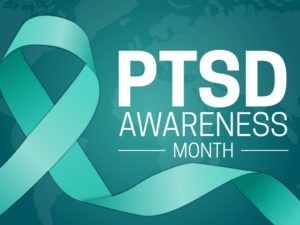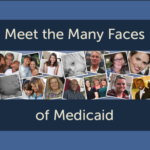
According to the American Psychological Association, PTSD is a psychiatric disorder that may occur in people who have experienced or witnessed a traumatic event such as a natural disaster, a serious accident, a terrorist act, war/combat, or rape or who have been threatened with death, sexual violence or serious injury.
Facts about PTSD
According to the National Center for PTSD:
- About 6 out of every 100 people in the United States will have PTSD at some point in their lives.
- Nearly 12 million adults in the U.S. have PTSD during a given year.
- About 8 of every 100 women will develop PTSD sometime in their lives compared with about 4 of every 100 men.
Signs and Symptoms
In most cases, a mental health provider, such as a psychiatrist of psychologist, diagnoses PTSD. The assessment usually includes answering questions about one’s thoughts, feelings and behaviors. Some of the symptoms of PTSD may include:
- Flashbacks of trauma
- Intrusive thoughts
- Avoidance of people or places related to trauma/event
- Insomnia
- Sudden bursts of anger/frustration
- Depression
- Numb or blunted emotions
Support and Resources
Encouragement and support of friends and family is very important. Below are some helpful links to educational programs and support groups:
- View this video from PsychHub – Tips to Help Someone with PTSD
- Take the PTSD e-learning module now available.
- Visit the National Center for PTSD at ptsd.va.gov.
- Read this PTSD Help Guide, which offers a number of tips for helping your loved one and yourself cope with the symptoms of PTSD.
- Look into NAMI Homefront, a program for family members of veterans and service members whose traumatic experiences are associated with military services.
- Learn about PTSD support groups.
- View resources provided by the Anxiety & Depression Association of America that include: brochures, a link for treatment and screening, FAQs and more.
- View digital sharables on PTSD provided by the National Institute of Mental Health.
- If you or someone you know is in a crisis:
- Contact the 988 Suicide & Crisis Lifeline: Call or text 988.
- Lifeline Chat
- Connect with a Crisis Counselor 24/7 by texting “HOME” to 741741
Veterans Crisis Line: - Dial 988 then Press 1
- Chat online
- Send a text to 838255





